In the world of sitcoms, the more trapped a character feels, the funnier their situation usually is for the audience. In the case of Steptoe and Son you’d be hard pushed to find a set of circumstances where you would feel more confined. Being stuck in a rundown house with no money and no chance of escape would be bad enough, but add to that mix a father with no personal pride and a desire to repress any aspirations his son might have, and you have a recipe for habitat hell. But, as we’ve just said, that hell makes for great comedy.
Harold Steptoe (Harry H. Corbett) was a dreamer; always looking for ways to improve himself, his social group and ultimately his life. Running a rag and bone business with his father Albert (Wilfrid Bramble) from their home in Oil Drum Lane, Shepherd’s Bush, was not where he wanted to be. An optimist about many things (he would always refer the junk that the pair collected as ‘antiques’) he would often be found planning a new way to get out of the house he shared with Albert, usually with the ambition of achieving this via finding a ‘posh bird’.
In attempting to woo said woman Harold would (slightly pretentiously) use his knowledge of literature, classical music and his ability as an amateur dramatist to show that he was more than a down-at-heel scrap dealer. However, even if he did succeed in convincing a lady to go out with him, he still had to come up against his father, who would thwart his every move in whatever way possible to stop him leaving.
A more revolting person than Albert Steptoe you’d be hard to find in any British sitcom. Slovenly, unkempt and with no personal pride (he rarely took a razor to his face, and was content to slip a pair of dentures into his mouth that were so old the teeth were discoloured and falling out) he was convinced that after many years of working it was now time for him to sit back and let Harold do all the hard graft for him. Terrified that his son would abandon him to his own devices, Albert felt no guilt in using every trick in the book to keep him under the thumb; no threat or pitiful pleading was beneath him, and it usually worked. Despite Harold’s desperation to get away, there was just enough of a bond between him and Albert for the old man’s sly plotting to convince him to stay.
In fact, in most of the situations where Harold went to head to head with Albert, the senior Steptoe usually proved himself to be the dominant male. Albert was more intelligent, and definitely more cunning than his son, and wouldn’t think twice about using Harold’s occasional lack of logical judgement to bolster his own chances of winning. He spent much of his time underhandedly digging at Harold’s confidence, goading him about his idealistic and sometimes naïve plans which drove Harold to distraction. On one occasion Albert wound up Harold so much that he was driven to dissect the Steptoe house in two so that he wouldn’t have to share any space with his father.
A running joke of the programme was Harold being disgusted by some of his father’s less attractive habits (eating pickled onions in the bath and slurping down ones that he’d dropped in the water for example) and often referred to him as a ‘dirty old man’. Albert’s oft heard cry was a screech of ‘Arold!’ whenever he wanted something.
Steptoe and Son originated from stand-alone humorous play ‘The Offer’ written by Ray Galton and Alan Simpson (noted for the sublime Hancock’s Half Hour) which was included in the BBC commissioned Comedy Playhouse in 1962. They didn’t write it with the intention that it would be turned into a series; in fact due to spending more money on earlier plays in the Comedy Playhouse series, ‘The Offer’ had a tiny budget and as such was written as a two-hander between a father and son to keep costs down. The BBC Head of Comedy at the time felt that it had potential, and so did the audience when it was broadcast.
The writing duo then developed the idea into a fully-fledged sitcom, and in doing so helped change the way comedy was seen on British television. Instead of middle-class farce or humour derived from one liners and slapstick, Steptoe and Son focused on the lives of two working class and decidedly shabby men who used swear words, in so far as the BBC would let them at any rate. Both roles were also, and unusually played by straight actors, not comedians or comedic actors – in fact Corbett was known as one of Britain’s first method actors, and had been compared to Marlon Brando.
The first series was well-received and was followed by a further three which ran through to 1965, all in black and white. After a break of five years, four more series were produced and broadcast from 1970 to 1974 in colour, although due to the BBC’s archive wipe in the mid-seventies, several of these episodes now only exist as black and white copies. Two Christmas specials were broadcast in 1973 and 1974, with the latter one completing Steptoe and Son’s highly successful television run.
There were also a couple of films released whilst the programme was still in motion. In 1972 Steptoe and Son was released; the plot was very similar to the TV show, with Harold about to get hitched, but still unable to get out from his father’s grasp. This film was so popular that in 1973 Steptoe and Son Ride Again was made and released, with a plot centred around Harold’s attempt to fake Albert’s death and claim his life insurance.
Whilst the 1974 Christmas special was the last time Bramble and Corbett filmed as the dysfunctional pair for the comedy series, in 1977 they appeared together in a couple of adverts for Ajax, in a sketch for Radio 2 in 1978, and in 1981 they filmed another commercial for Kenco. Having not seen these particular adverts I’d like to hope they were in the same comedic vein as the ones Leonard Rossiter filmed for Cinzano – i.e. genuinely funny. This wasn’t the last we saw of ‘Arold and Albert however; Ray Galton went on to write a play (with playwright John Antrobus) called Steptoe and Son in Murder at Oil Drum Lane which was premiered at the Theatre Royal in York. The plot featured the build-up to Harold killing his father (and who could blame him?) and then meeting him as a ghost thirty years later.
Since the end of Steptoe and Son Galton and Simpson have adapted many of the TV episodes for the stage, so whilst the original ‘dirty old man’ and his son are long gone, the comedy will rightfully live on.
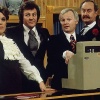
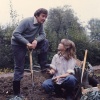
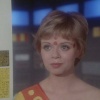
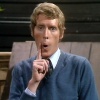
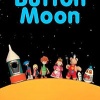

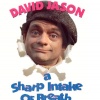
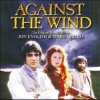
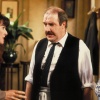
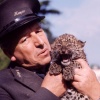
Do You Remember Steptoe and Son?
Do You Remember Steptoe and Son?